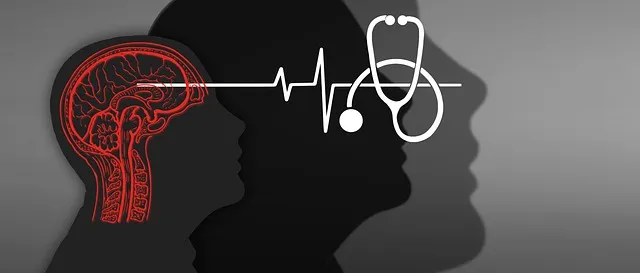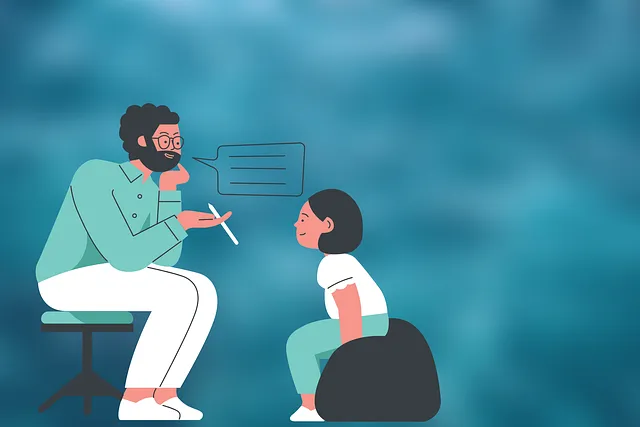Misdiagnosis in mental health care at facilities like the Lone Tree Kaiser Permanente (LTPKP) center carries severe repercussions. Complex patient cases, comorbidities, and subjective assessments pose challenges, exacerbated by healthcare provider burnout. LTPKP has addressed this through innovative tools like Compassion Cultivation Practices and data analytics for early mental health condition prediction. Continuous education focusing on cognitive assessments and patient self-reporting enhances diagnostic accuracy. The center prioritizes patient-centered care with open communication, collaborative decision-making, and resources like the Mental Wellness Podcast Series. These proactive approaches improve patient outcomes and staff well-being at LTPKP.
At the Lone Tree Kaiser Permanente mental health center, efforts are underway to enhance diagnosis accuracy, inspired by the understanding that misdiagnosis rates can significantly impact patient outcomes. This article delves into the challenges of mental illness assessment, highlighting misdiagnosis prevalence and consequences. It explores innovative tools, from advanced assessment techniques to technology integration, designed to improve accuracy. Additionally, it discusses training programs equipping healthcare professionals and patient-centered care strategies enhancing communication, all vital components in the pursuit of better diagnosis at Lone Tree Kaiser Permanente.
- Understanding the Challenges: Misdiagnosis Rates and Their Impact
- Innovative Tools and Techniques for Accurate Assessment
- Training and Education: Equipping Healthcare Professionals
- Patient-Centered Care: Enhancing Communication and Collaboration
Understanding the Challenges: Misdiagnosis Rates and Their Impact

Misdiagnosis rates in mental health have significant implications, especially when considering the impact on patient care and well-being. The Lone Tree Kaiser Permanente mental health center visiting hours highlight a pressing need to address this issue, as incorrect diagnoses can lead to ineffective treatments and delayed access to appropriate care. Many factors contribute to misdiagnosis, including complex patient presentations, comorbidities, and the subjective nature of mental health assessment. Healthcare providers often face challenges in differentiating between similar disorders, especially when symptoms overlap.
This problem is further exacerbated by burnout prevention strategies for healthcare providers that may impact their attention to detail or clinical decision-making abilities. Effective communication strategies and enhanced mental health awareness are crucial steps towards improving diagnosis accuracy. By implementing evidence-based practices and continuous training, mental health professionals can better understand the nuances of various conditions, ultimately reducing misdiagnosis rates and improving patient outcomes.
Innovative Tools and Techniques for Accurate Assessment

Mental illness diagnosis accuracy has seen significant advancements with the integration of innovative tools and techniques at healthcare centers like the Lone Tree Kaiser Permanente mental health center, which operates within the bustling landscape of modern healthcare. These approaches go beyond traditional methods, leveraging advanced assessment tools to enhance diagnostic precision. One such method is the implementation of Compassion Cultivation Practices, designed to foster understanding and empathy among healthcare providers. By cultivating compassion, these practitioners can create a more supportive environment, leading to improved patient interactions and, consequently, more accurate assessments.
Additionally, technologies focused on data analytics are being employed to predict and identify mental health conditions earlier. This proactive approach is crucial in managing anxiety relief and burnout prevention strategies for healthcare providers. Through sophisticated algorithms and machine learning models, these tools can analyze patterns and trends within patient data, enabling mental health professionals to make more informed decisions. Such innovative practices not only enhance diagnosis accuracy but also contribute to improved patient outcomes and the overall well-being of healthcare providers at Lone Tree Kaiser Permanente and similar facilities worldwide.
Training and Education: Equipping Healthcare Professionals

Mental health professionals play a pivotal role in accurately diagnosing illnesses and providing effective treatment. Training and education are key to enhancing their skills. Programs aimed at updating healthcare providers’ knowledge on mental disorders, including recent research and best practices, can significantly improve diagnostic accuracy. Workshops focusing on cognitive assessments, behavioral observations, and the integration of self-reported symptoms from patients offer valuable insights. These educational initiatives ensure that professionals stay current with evolving methodologies, such as Mind Over Matter principles and Stress Reduction Methods, enhancing their ability to discern subtle signs and symptoms.
The Lone Tree Kaiser Permanente mental health center, for instance, recognizes the importance of these efforts in its commitment to patient care. By scheduling regular training sessions on diagnosis and treatment, the center ensures that its staff remains well-equipped to handle a diverse range of mental health concerns. This proactive approach aligns with the broader trend in the industry to prioritize evidence-based practices, ultimately benefiting patients through more precise and compassionate care.
Patient-Centered Care: Enhancing Communication and Collaboration

At Lone Tree Kaiser Permanente mental health center, patient-centered care is a cornerstone of their approach to enhancing diagnosis accuracy. This means putting the patient at the heart of every interaction and treatment plan. By fostering open and honest communication, mental health professionals create a safe space for individuals to express their experiences and concerns. This collaborative process involves actively listening to patients, considering their unique perspectives, and involving them in decisions related to their care.
The mental wellness podcast series produced by the center offers valuable insights into Mind Over Matter principles, further emphasizing patient-centered care. Additionally, they provide Mental Wellness Journaling Exercise Guidance, encouraging individuals to reflect on their emotions, thoughts, and behaviors as part of their journey towards improved mental health. These initiatives not only strengthen the patient-provider relationship but also empower individuals to actively participate in managing their mental wellness during visiting hours and beyond.
Mental illness diagnosis accuracy is a multifaceted challenge, but with innovative tools, comprehensive training, and patient-centered care, significant improvements are within reach. Just as the Lone Tree Kaiser Permanente mental health center in Colorado prioritizes accessible visiting hours to cater to its community, healthcare professionals worldwide can embrace similar strategies to ensure accurate diagnoses and effective treatment plans. By integrating these efforts, we can enhance mental health outcomes and create a more supportive environment for those seeking help.


